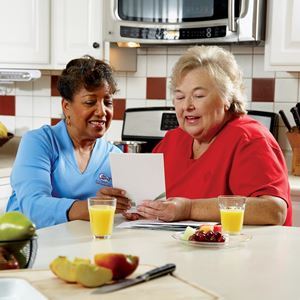More Coronavirus Resources:
Thursday, January 11, 2018
For many years, it was suggested that eating disorders existed almost exclusively with younger age groups, such as adolescents and teenagers. It’s only been in the last decade or so that medical experts have come to discover that these problems are not exactly unique to younger people. In fact, eating disorders, namely anorexia and bulimia, are also quite common among one group in particular: aging adults.

Different Impact as We Age
This may come as a surprise, especially when one considers the contributors of eating disorders in younger groups, such as low self-esteem and negative body image – factors that we don’t usually associate with older adults. But we shouldn’t forget that, for younger people, these feelings don’t simply manifest from thin air. They’re often brought on by external stressors, like bullying. It’s no different for older adults, expect that the stressors are often dramatic life events, such as the death of a spouse, a serious illness, or a debilitating injury.
What also separates eating disorders in the elderly vs. younger people is that the resulting damage is much more severe. Natural aging processes already make the body more fragile and less resilient – and nutritional deprivation will ultimately increase a senior’s risk of developing everything from osteoporosis to sarcopenia.
Signs of an Eating Disorder Despite its prevalence in the aging community, eating disorders often go unnoticed by family caregivers because the symptoms may be similar to those found in the aging process. In many cases, it simply doesn’t occur to the family caregiver that the root cause may be an eating disorder. However, it’s imperative for family caregivers to recognize the signs of eating disorder. Below are a few to look out for:
- Fluctuations in weight, especially in a short span of time
- Constant stomach problems
- Stained or discolored teeth
- Dramatic weight loss
- Change in behavior, especially during/after meals
- Going to the bathroom immediately after meals
- Extreme sensitivity to cold
Having the Discussion
If you’ve identified that your loved one may be suffering from an eating disorder, plan out how to approach the issue. First and foremost, find a good time to talk in private and be upfront about what you’ve observed and why you’re concerned. Secondly, anticipate that there will be some resistance and denial. It’s no easy task to admit when we have a problem, and it’s natural to become defensive.
Let it be known that you are always available to discuss next steps and ready to help find treatment (if necessary). Most importantly, when discussing an eating disorder with a loved one, be sure not to trivialize the problem, but also don’t pretend to understand exactly what they’re going through. Simply keep the lines of communication open, and offer your support.
Comfort Keepers® Can Help
Comfort Keepers® can provide the support your aging loved one needs. Our compassionate, professional caregivers can remind him or her to eat and even prepare healthy meals. Simply put, our goal is to see that your loved one has the means to live a happy, safe, and independent life. Contact your local Comfort Keepers office today to learn more about how we can make a difference in your aging loved one’s life.
References:
Medical News Today. “Older people and eating disorders: not ‘just a teenager’s problem’” by James McIntosh. Web. 2018.
Eating Disorder Hope. “Common Types of Eating Disorders Observed in the Elderly Population” by Jennifer Rollin, MSW, LGSW. Web. 2018.
HelpGuide. “Helping Someone with an Eating Disorder” by Melinda Smith, M.A. Lawrence Robinson, and Jeanne Segal, Ph.D. Web. 2018.







